Marijuana is a popular drug for medicinal and recreational purposes that is fully legalized in some states, but it’s still a controversial substance that carries the potential for abuse.
Tetrahydrocannabinol, also known as THC, is the main active ingredient in marijuana and is what leads to the “high” associated with smoking marijuana or consuming it in other forms. The THC tells the brain of any woman or girl to release dopamine, which can provide a feeling of euphoria and possibly interfere with how her brain processes information.
That high is part of the reason marijuana is the most commonly used illegal drug in the United States, according to the CDC. Without proper precautions, thinking that it’s just a way to take the edge off can turn what seems like casual, recreational marijuana use into marijuana addiction.
What Are Some Common Signs & Symptoms of Marijuana Addiction?
You may know several women and girls who engage in marijuana use due to its popularity and increasing availability. But it’s important to be able to distinguish what separates recreational or medical use of the substance from marijuana abuse.
Here are some common signs that may indicate that it might be time to seek professional treatment for marijuana addiction:
- Impaired coordination
- Increased appetite
- Bloodshot eyes
- Inability to concentrate
- Decreased motivation
- Dryness of the mouth
- Cough unrelated to illness
- Reduced muscle strength
- Loss of motor skills
- Delayed reaction time
- Fatigue
- Panic or fear reactions
- Paranoia
What Are the Causes & Risk Factors of Marijuana Addiction?
The reasons a woman or girl may engage in marijuana use or marijuana abuse can vary depending on several genetic and environmental factors. These include:
- Genetic: Family history of substance abuse
- Environmental: Exposure to marijuana use at an early age, childhood adversity, history of mental or physical abuse, easy access to marijuana, peer pressure, lack of adequate social skills, personal history of substance use or mental health disorders
What Is the Prevalence of Marijuana Addiction?
The most commonly used illicit drug in the world, 55 million people (16.9% of the population) in the United States engaged in marijuana use in 2019. Some additional statistics paint a more complete picture of the demographics of marijuana addiction in the U.S.
- People who begin using marijuana before age 18 are four to seven times more likely to develop marijuana use disorder than adults, according to the National Institute on Drug Abuse.
- Also per the National Institute on Drug Abuse, in 2015, about 4 million people in the U.S. met the diagnostic criteria for marijuana use disorder, yet only 138,000 voluntarily sought treatment for marijuana addiction.
- In 2016, 2.3% of adolescents ages 12–17 had marijuana use disorder, a similar percentage to the previous two years but lower than 2002-2013, according to the Substance Abuse and Mental Health Services Administration (SAMHSA).
- Emergency room visits related to marijuana increased by 54% and hospitalizations increased by 101% in 2018 in states where marijuana is legalized, according to the National Center for Drug Abuse Statistics (NCDAS).
Why Should I Seek Marijuana Addiction Treatment?
Marijuana use can have undesirable short-term effects like impaired motor and cognitive skills, elevated heart rate, anxiety, and paranoia. If you don’t seek proper marijuana addiction treatment, you put yourself at greater risk for some of the following long-term consequences as well:
- Developing other substance use disorders
- Heart attack and stroke
- Developing certain cancers
- Sleep troubles
- Possible trouble with the law, depending on the legality of the marijuana use
- Poor performance in school or at work
- Strained relationships
- Financial concerns
By deciding to receive marijuana addiction treatment, you can stop any potential long-term damage in its tracks and begin to get the help you need to live a more fulfilling life free of substances.
How Can I Choose the Right Marijuana Addiction Treatment?
Marijuana abuse can leave any woman or girl in a state of emotionally stunted growth and can make it difficult to successfully navigate relationships, excel in academics, or find a fulfilling career. Without the right treatment, what may have initially been a way to unwind can turn into addiction.
Deciding that you’re ready for marijuana addiction treatment is a big step. But to make true progress toward improving your outcome, you need to find the type of care that addresses you as an individual rather than a number.
At Timberline Knolls Residential Treatment Center, we make sure your treatment experience is unique to you. We use a whole-person approach to identify the root of your struggles so that we can provide the treatment you need to live the life you deserve.
Depending on your current needs, you’ll either take part in residential treatment or our partial hospitalization program (PHP).
Residential care gives women and girls the opportunity to step away from their daily stressors, participate in our marijuana addiction treatment programming, and stay in one of our on-campus lodges. Our PHP includes full participation in our therapeutic offerings during the day while giving you the chance to return home at night and on the weekends. On–campus housing is provided if needed.
What Is the Marijuana Addiction Treatment Experience Like?
Like all programming at Timberline Knolls Residential Treatment Center, our marijuana addiction treatment uses evidence-based practices to help women and girls quickly gain a foothold in the recovery process.
Our team of licensed therapists and other addiction treatment professionals will provide you with a specific treatment plan that caters to your strengths, but all residents will experience some common elements in our programming, which may include:
- Dialectical behavior therapy (DBT)
- Acceptance and commitment therapy (ACT)
- Cognitive behavioral therapy (CBT)
- 12–Step recovery principles
- Group therapy
- Family therapy
- Individual therapy
- Experiential therapy
- Medication management
At the conclusion of your treatment, we’ll make sure you’re set up for long-term success and support. We’ll provide you with a detailed discharge plan and help you sign up to be part of our thriving, nationwide alumnae network.
This content was reviewed and approved by the clinical staff at Timberline Knolls Residential Treatment Center.







